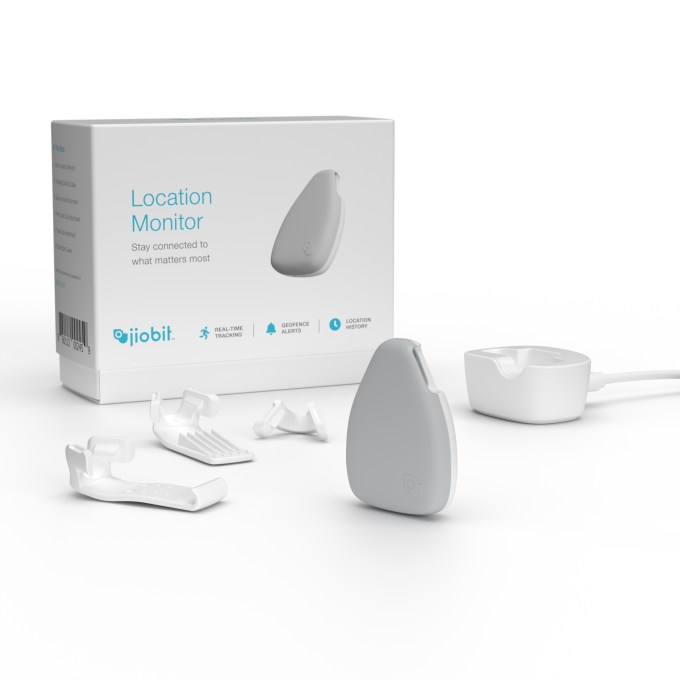Popular family tracking app Life360 is investing in hardware. The company this morning announced the $37 million acquisition of Chicago-based Jiobit, the maker of a wearable location device designed for use by families with younger children, pets, or seniors. The $37 million is primarily in stock and debt, Life360 notes, but if certain performance metrics are met within two calendar years following the deal’s close, the deal price could increase to $54.5 million.
The Jiobit was first introduced on the market in 2018, mainly as a kid and pet tracker. The small, lightweight device can be attached to items kids wear or carry, like belt loops, shoelaces, and school backpacks, and appealed in particular to families who wanted a way to track younger children who didn’t yet have their own mobile device. Earlier this year, the company launched an updated version of the Jiobit ($129.99) that included a combination of radios (Bluetooth, Wi-Fi, cellular and GPS), as well as sensors, including an accelerometer/pedometer, temperature sensor and barometer.
The new antenna system was specifically designed to increase performance inside schools, stores, high rises and other challenging signal environments. It also leveraged the reach of low-power, wide-area (LPWA) wireless networks in order to better serve rural regions where cellular coverage is limited and spotty. And the new device was waterproof (IPX8) up to 30 minutes in up to 5 feet of water and had a longer battery life.

Image Credits: Jiobit
Life360 envisions adding the Jiobit to its existing family safety membership, allowing family members and pets with the device attached to show in the Life360 mobile app’s map interface, alongside other family members. Life360’s paid users (Premium members) would get a discounted Jiobit along with their subscription.
“We’ve long wanted to expand beyond the smartphone into wearable devices, and Jiobit offers the market leading device for pets, younger children, and seniors,” said Chris Hulls, CEO and co-founder of Life360, in a statement about the deal. “With Jiobit, Life360 would be the market leader in both hardware and software products for families once the deal closes. We will continue to seek out additional opportunities that could further cement our position as the leading digital safety brand for families,” he added.

Image Credits: Life360
San Francisco-based Life360 made a name for itself over the years as an app that parents love, but teens hate. In more recent months, however, the company has been responsive to teens’ criticism of being helicopter-parented with no freedom of privacy, by announcing new features like “bubbles” that instead allow the teen to share a generalized location instead of their specific whereabouts. Hulls has also regularly engaged with teens via TikTok, in a clever marketing move.
As of the end of 2020, Life360 claimed more than 26 million monthly active users across 195 countries.
The acquisition is still pending the approval of the boards of the two companies.
from Startups – TechCrunch https://ift.tt/2PrFtIx
Comments
Post a Comment